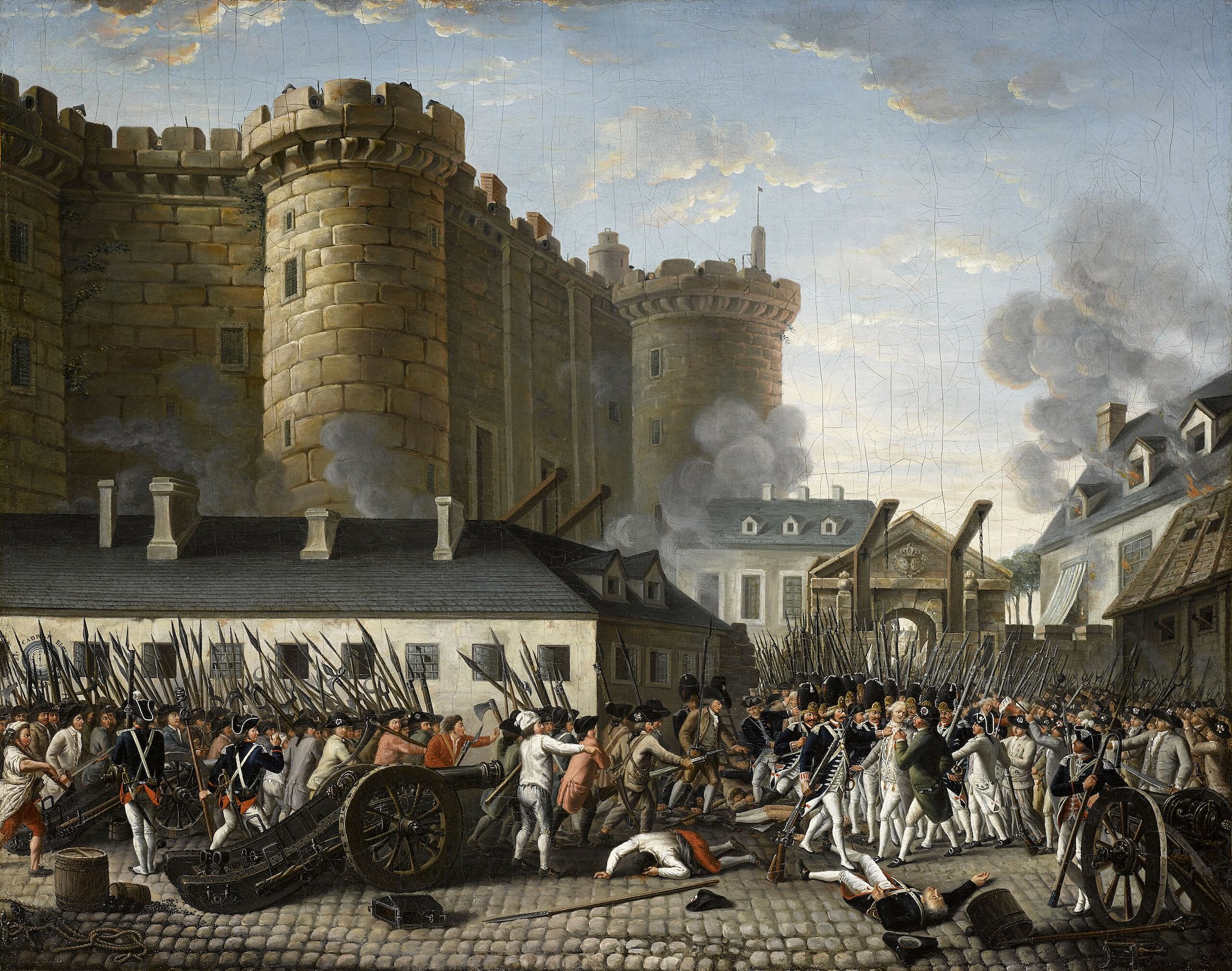For every stage of the 2023 Tour de France – men’s and women’s – José Been is bringing you stories about the history, castles, geology, culture, food, and people around the race. A bit of couleur locale while you enjoy lush fields of sunflowers, beautiful mountains, and pretty little villages, oh, and the bike race too.
Today is July 14, ‘quatorze juillet’, the most important national holiday in France. The festivities are everywhere, from the smallest towns to the biggest cities. It’s a grand spectacle extraordinaire. Let’s go back in time to find out why.
We are talking about the end of the 18th century. France had a class society of clergy, nobility, bourgeoisie, and peasants. The nobility made up less than 2% of the population and the clergy around 1%. These estates paid no taxes and had a lot of power, especially the clergy. About 97% of the population belonged to the peasantry and the bourgeoisie or ‘merchant class’ with peasants being the largest group by far. They worked the lands of the noblemen, had to cough up all taxes, but had nothing to say politically.
It wasn’t just the peasants and the bourgeoisie that were unhappy, and can you blame them? The nobility was also dissatisfied from halfway into the 18th century. Under King Louis XV they lost several noble privileges as the monarch tried to distribute taxes more fairly. In itself it was a great idea but the nobility blocked all attempts at tax reform. It happens in all ages apparently.
Back to 1789 and the start of the French Revolution on July 14. The king, Louis XVI by now, and his wife, Marie Antoinette, were not popular, to put it mildly. They spent a lot of tax money on palaces, pensions, wars, loans, and luxuries. Marie Antoinette, for example, had bought her own luxurious farm and had incurred a lot of gambling debts. But as the king was appointed and anointed by God, who could say he was wrong? His power was considered absolute and unchallenged but that was about to change.
There were a number of factors: the new age of Enlightenment, where people were encouraged to think for themselves outside of the strict boundaries of religion; several very expensive wars fought by the French king leaving the state almost bankrupt; the church’s enormous wealth; the peasants’ poverty; and a disastrous harvest in 1788. It all led to a perfect storm and fertile grounds for revolution.
On July 14, 1789, about 20,000 Parisians headed for La Bastille, the most important prison in town. It was the symbol of the French Ancien Régime, the old ruling class. The protesters were aiming to loot the ammunition depot in the basement. The storming of the Bastille was one of the first major acts of violence of the French Revolution.
The capture of the prison was a sign to the population that the monarchy’s rule and oppression were over, that they could seize power. Fun fact: at the time of the storming of the Bastille, there were only seven prisoners there, which did not make the event any less meaningful. It was a symbolic start to change.
This period in French history comprises many years of revolution, oppression, and terror, and new revolution is too complicated to explain in a few words. Some key moments though. It started on that 14th of July in 1789 and in 1792 the monarchy was abolished. A year later Louis XVI was decapitated by guillotine, as was his wife, Marie Antoinette.
By July 1793, the French Revolution was in crisis. The economy was in shambles, and the country was beset by internal and external enemies. In the face of this crisis, the new regime turned to terror as a way to consolidate its power and silence its opponents. Also very familiar in modern times.
But this also ended. In November of 1799 Napoleon Bonaparte seized power via a coup d’état. That coup marked the end of the Revolution because France went back to absolute power again, this time under Napoleon who would later become emperor.
What did you think of this story?

